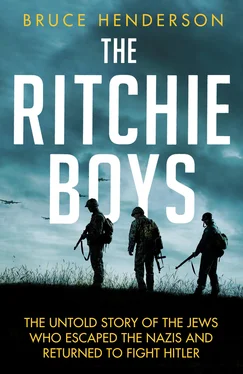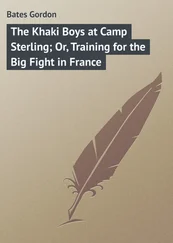Off in the corner, Stephan and the other Jews were ignored.
In the fall of 1938, Stephan’s father remarried. His new wife was Johanna Arzt, and Stephan had played a role in how the couple met: Johanna was the sister of the woman who’d brought Stephan home with her son on Sundays while his father was in the concentration camp. After Arthur’s release from Oranienburg, father and son attended several Sunday dinners with the Arzts, and it was at these dinners that Arthur and Johanna were introduced.
Stephan, starved for a mother’s love, quickly grew close to Johanna, a nurturing and kind Jewish woman like his mother. Soon, he felt close to her and was calling her Mutter without reservation.
By then, Arthur had lost his shop. At night, he went out to knock on the doors of old customers, taking tobacco orders. He turned these over to an Aryan tobacconist to fill and received small commissions. Johanna worked as a bookkeeper. They still lived in a tiny rented room, so Stephan stayed at the orphanage.
As he was returning from school one day in early November 1938, Stephan saw a banner headline at a corner newsstand.
JEW KILLS GERMAN ATTACHÉ IN PARIS
Stephan knew immediately that this was big news, and he dug into his pocket for the change to buy a newspaper.
A week earlier, more than twelve thousand Polish-born Jews, who had resided legally in Germany for years, had been expelled from the country. Forced from their homes in a single day, they were taken to the nearest railroad stations and put on trains to the Polish border. Four thousand were allowed into Poland, but the remainder were denied entry and found themselves in limbo, trapped on the desolate frontier between the two countries. They spent a week in the rain and cold, enduring a lack of adequate food and shelter. Then, on November 7, Herschel Grynszpan, a seventeen-year-old boy living in Paris, the son of two Polish Jews who had been rounded up, walked into the Third Reich embassy there and shot the diplomat. He wanted to avenge the Nazis’ treatment of Jews, and his family in particular.
At the time, Hitler and Joseph Goebbels, his minister of propaganda, were reveling at the annual celebration of the Beer Hall Putsch in Munich, which commemorated Hitler’s first attempt to seize power in 1923. Within hours of hearing the news, they had plotted a response. They viewed the killing—Nazi propaganda called it the “first shot of the Jewish War”—as an opportunity to unleash a long-planned, violent mass action against Jews. Later that day, Goebbels outlined to wildly applauding party leaders the nationwide pogrom that would become known as Kristallnacht.
Beginning at midnight, secret teletype messages from Gestapo headquarters in Berlin went out to military and police units across the country, ordering organized anti-Jewish demonstrations in cities, towns, and villages throughout Germany, encouraging the destruction of synagogues and other Jewish properties, and authorizing the mass arrest and detention of Jews.
In Berlin the next day, angry crowds filled the streets, chanting, “Down with the Jews!” Nazi gangs—many of them SA brownshirts in uniform or Nazis in civilian clothes—armed with guns, knives, crowbars, and bricks, assaulted Jewish men at random, made widespread arrests, and plundered and set fire to synagogues and Jewish homes and businesses. Firemen stood by and watched as the buildings burned.
Early the next morning, a group of uniformed Nazis burst through the doors of the Auerbach Orphanage, taking the staff members, all of them Jewish, into custody. They went into the dormitories on the ground floor of the U-shaped building—one wing for the boys and the other for the girls—and rounded up the children, herding them all upstairs to the synagogue. The coverings on the bimah—a raised platform from which the Torah is read—had been ripped away. The holy ark where the Torah scrolls were kept had been torn off the wall, and other symbols were destroyed.
The terrified boys and girls filled the pews and lined up along the walls, waiting to see what horrible things the Nazis had in store for them. But the Nazis simply left the synagogue without saying a word, leaving the frightened children to exchange confused looks.
A few moments later, Stephan heard the jangle of keys and the sound of the door being locked from the outside. Then he smelled the gas. The eternal light (ner tamid), located in front of the ark and symbolizing God’s enduring presence, had been smashed; the gas line that fed the flame had been cut. A steady stream of gas was flowing through the broken pipe and into the synagogue filled with children. If they did not escape from the confined space—and quickly—they would all die.
Some of the older boys desperately tried to break down the heavy door, but it wouldn’t budge. When the children realized they couldn’t get out, their fear turned to panic. Many of them, crying and screaming, started coughing and choking from the fumes.
One of the older boys picked up a chair and began smashing it against the beautiful windows. Stephan and some other boys joined in, and working together, they were able to break out several tall panes. The openings allowed fresh air to come in and the fumes to begin to dissipate. The children remained locked inside the synagogue for the rest of the day, until a concerned neighborhood policeman came by and let them out.
Two days later, the orphans were directed by staff members to return to school. Those orphanage staff members who had been released from custody seemed eager to bring some normalcy back to the children’s lives. “Pick up your lunches and go to school,” they told the orphans. “Life goes on.”
The sights Stephan saw on that two-mile walk would stay with him for the rest of his life. Buildings were burnt shells; stores had been looted; Torah scrolls and prayer shawls lay crumpled in the streets. Armed Nazis patrolled corners and rooftops. Jewish men, forced to sweep up in front of their destroyed stores and homes, were beaten and jeered as they worked.
Shortly after Stephan and the other boys from the orphanage reached the school and took their seats in their classroom, a uniformed Nazi came into the room to lecture the children about the “mixing of our pure Aryan race.” He announced that Jewish children could no longer attend “Aryan state” elementary schools. “You have to leave this school now,” he said.
Puzzled but not daring to ask questions, Stephan and the other Jewish students quietly collected their things and left. Back at the orphanage, the administrators had also just been informed of this new policy. A building on Kaiserstrasse—about a forty-minute walk from the orphanage through downtown Berlin—was soon designated as an all-Jewish school.
By then, the children were all well aware that anti-Semitism surrounded them any time they ventured outside. There was no escaping it in Germany’s capital city and no way to prevent the inevitable: it followed them to their new school. On most afternoons, the students were confronted by uniformed Hitler Youth, lined up in rows on either side of the sidewalk for about one hundred feet. Swinging their leather belts overhead, they whipped the students—who were forced to run the gauntlet—with the buckle ends like cattle. Policemen stood by and watched, but did nothing other than stop the Jews from trying to defend themselves.
Thirteen-year-old Stephan understood that his life had changed. This realization was confirmed when he went home the following Sunday and told his father about the night of horror at the orphanage and about the other appalling things he had seen. It wasn’t only happening in Berlin, his father told him in hushed, tense whispers, but all across Germany. Although Jewish newspapers and magazines had been ordered to cease publication, he had heard that hundreds of synagogues had been destroyed. Thousands of Jews were being rounded up and sent to concentration camps.
Читать дальше












